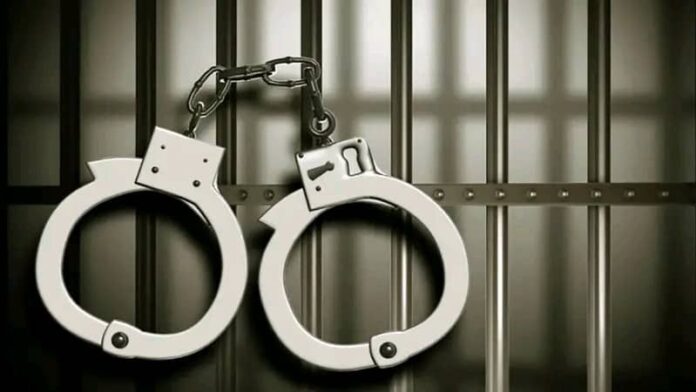By Burnett Munthali
The Malawi Police Service has arrested four individuals suspected of plotting to disrupt the forthcoming elections.
The suspects have been identified as Geofrey Kamanyengo, Fanwick Kerod, Upire Mkulumba, and Ladwell Ligomeka.
According to police spokesperson Peter Kalaya, the group allegedly planned to set markets on fire as part of their scheme.
Kalaya further revealed that the suspects intended to block vehicles transporting ballot papers at the Chingeni roadblock.
He explained that investigations show the suspects were coordinating their activities through a WhatsApp group.
Kalaya also stated that the suspects are believed to be supporters of a major political party contesting in the elections.

The arrests, he added, were made following intelligence reports that pointed to a deliberate attempt to incite violence and undermine the electoral process.
While the arrests mark a breakthrough for law enforcement, they also highlight deeper concerns about the fragile state of Malawi’s democracy as the September 2025 elections draw near.
At the heart of the matter lies a climate of deep mistrust between political parties, state institutions, and the electorate.
Malawi has a history of disputed elections, and the alleged plot to torch markets and obstruct ballot distribution is a chilling reminder of how quickly political competition can spiral into violence.
The fact that the suspects are allegedly linked to a major political party suggests that electoral rivalry is no longer confined to campaign promises and rallies but is dangerously extending into subversive acts.
This development underscores the vulnerability of Malawi’s electoral infrastructure, where even the disruption of ballot transport or public marketplaces could ignite broader chaos and erode public trust in the outcome.
For the Malawi Police Service, thwarting this alleged conspiracy is both a victory and a warning.
It demonstrates the capacity of security agencies to act decisively, but it also raises fears that similar clandestine operations may still be underway in the shadows.
The critical question now is whether Malawi’s political leaders are willing to rein in their followers, condemn acts of sabotage, and place national stability above partisan interests.
Without a firm stance from party leadership against electoral violence, security forces alone will not be able to safeguard the legitimacy of the democratic process.
As Malawi edges closer to election day, the nation finds itself at a crossroads: either uphold the integrity of the vote through peaceful participation or risk plunging into fear, disorder, and contested outcomes.
The arrests in this case do not only expose an alleged plot; they expose the fragility of Malawi’s democratic foundations.
With political stakes high, both leaders and citizens must choose between lawlessness and responsibility, between sabotage and democracy.
The future of Malawi’s elections—and its stability—depends on that choice.



